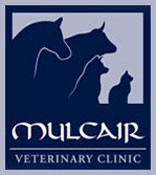General Information.
Pregnancy and nursing puppies constitute a severe strain on the mother’s health. Though most mothers handle the task admirably, the owner can take certain precautions to protect the health of both mother and puppies.
DIET: A diet that is high in energy and with high levels of protein is recommended.
FLUIDS: Provide clean, fresh water at all times.
ACTIVITY: Ordinarily the mother will spend most of the first three weeks with her puppies. Allow her as much exercise as she desires.
BOWEL MOVEMENTS: Due to increased food consumption and the enlarged uterus, your pet may have to relieve herself more frequently. The stools may be soft for the first few days. If diarrhoea or straining develops, call the vet.
MAMMARY GLAND CARE: Check the nipples daily and clean with warm water if dried milk begins to accumulate. Inform the vet of any discoloration of the skin, swelling, tenderness or sores.
VAGINAL DISCHARGE: A reddish vaginal discharge, with clotted blood, is normal for the first few days. This may occur intermittently for several weeks.
BEHAVIOR: Call the vet if the nursing mother appears nervous, restless or uncomfortable, or refuses to nurse the puppies.
GENERAL EFFECTS: Normally the mother experiences heavy coat shedding during the nursing period. Brush her regularly, and call the vet if any bald spots develop. A slight weight loss is normal, but consult your vet if the mother appears overly thin.
OESTRUS (Heat Period): Pregnancy should have no effect on the next heat period. This period should occur within six months after birth of the puppies.
SPEYING (Ovariohysterectomy): If you desire surgical sterilization for your pet, an appointment should be scheduled after the puppies have been weaned and milk production has ceased, but before the next heat period.
Please Contact Us if you have any questions about your bitch after she has whelped.

